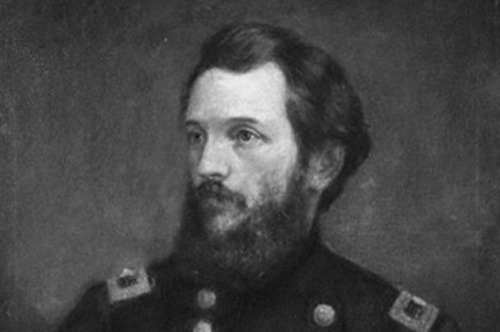There have been 19 presidents in Illinois State’s history, including our current president, Larry Dietz. Though the role and duties of the University president have changed over the last 158 years, there has always been one constant in their job: Be a leader for the University. By researching the collected archival papers of our university presidents, one can learn a lot about the University and how it has grown from a small teachers college and evolved into a national leader in liberal arts education.
At the University Archives, we have 16 presidential collections and one acting president’s papers. We are currently working on the last of our presidential collections, Lloyd Watkins’ collection, and hope to have his materials available soon.
Not all of our presidential collections have the same type of materials. The first president’s collection is composed of one small box of correspondence while the second president has 17 boxes of speeches, sermons, lectures, accounting notes, and family diaries. Each presidential collection is as unique as the president himself, holding materials relating to university operations and his own personal interests. But the collections all have similar kinds of documentation speaking to the administration of the University. Collecting and saving the materials of our presidents have not always been consistent, but we are working to identify and fill those gaps in Illinois State’s presidential history.
While the presidents’ papers are great sources of administrative and academic history, they can also give us information on athletics, student life, and communitywide projects. Let’s say you wanted to research the history of Redbird football. How did it get started? What were some of the early academic policies for student players? You might think athletics collections would yield these answers—and they would. But with the presidents’ papers, you can also look at how each president worked with national organizations like the NCAA, read correspondence between rival schools, and see memos passed between coaches and presidents about upcoming games. You could also research the construction of a campus building, track changes in faculty salaries, see how a department developed, or learn how national events like wars, the Civil Rights movement, or the assassination of U.S. President John F. Kennedy impacted life on campus. Presidents’ papers are a treasure trove of information; they can show a university’s major milestones in history down to its tiny administrative details.
What to see more of our presidents’ papers? Have a look at our list of presidential papers or search for them by name. If you see some items you’d like to look at, let us know by sending us an email and we’ll schedule you an appointment.

